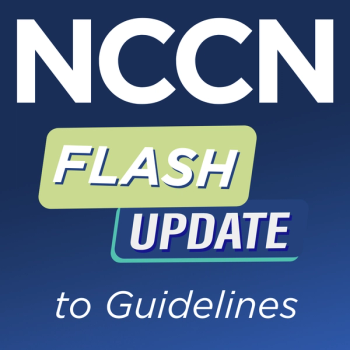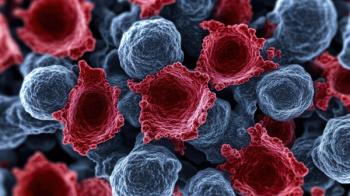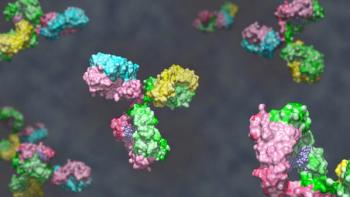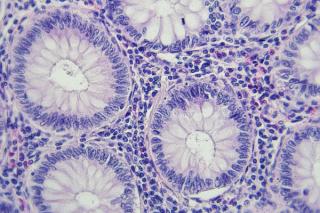
Colorectal Cancer
Latest News

Latest Videos

Podcasts
CME Content
More News

The study found that 4 weeks was the ideal time point to test for cTDNA.

NCCN updates colon cancer guidelines, emphasizing testing for DPYD gene variants before initiating fluoropyrimidine-based chemotherapy.


The approval was based on efficacy and safety data from a randomized, 3-arm, open-label phase 3 CHECKMATE-8HW trial.

Using central obesity measures provides more accurate estimates of the proportion of CRC cases attributable to excess weight compared to using BMI alone.

Encorafenib in combination with cetuximab and mFOLFOX6 met its dual primary end point of overall response rate of 61%.

Nivolumab plus ipilimumab demonstrated a 38% reduction in the risk of disease progression or death.

Data from the CodeBreaK 300 trial supported the FDA's approval.

Pharmacists play a vital role in cancer prevention and early detection by educating patients on risk factors, counseling on screening guidelines, and promoting adherence to evidence-based recommendations for common cancers, such as breast, cervical, colorectal, lung, prostate, and skin cancer.

Invikafusp alfa (STAR0602; Marengo Therapeutics Inc) is being investigated as a treatment for advanced colorectal cancer with high tumor mutational burden.

The decision is based off favorable results from the BREAKWATER trial.

The researchers suggest that an imbalance between pro-inflammatory and resolving lipid mediators may drive tumor growth.

Pharmacists can educate and encourage screenings for colon cancer to ensure it is discovered as early as possible.

The addition of high-dose vitamin D3 to standard treatment did not delay the progression of cancer compared with the standard dose of vitamin D3.

The new screening test provides an easier, convenient option for patients seeking to screen themselves for colorectal cancer.

Abstracts from the OrigAMI-1 and MARIPOSA-2 trials indicated the treatment benefits of amivantamab-vmjw and chemotherapy in multiple cancer indications.

At ESMO Congress 2024, Shuji Ogino, MD, PhD, MS, explained that the rising incidence of young-onset cancer may be due to generational risk factors such as lifestyle, diet, and environmental changes, emphasizing the need for long-term research and follow up to understand early-life influences on cancer development.

The blood test offers patients advanced screening methods capable of detecting colorectal cancer in its earlier stages.

Adagrasib receives accelerated approval for patients with previously treated KRAS G12C-mutated locally advanced or metastatic colorectal cancer (CRC).

The test’s sensitivity in distinguishing colorectal cancer, in combination with real-world adherence, showed its ability to detect cancer at a curable stage.

The novel therapy is also being evaluated for the treatment of solid tumors in pancreatic and non-small cell lung cancers.

The sNDA was based on results from the KRYSTAL-1 study, evaluating the drug alone or in combination with other anti-cancer therapies in those with advanced solid tumors who have KRASG12C mutations.

This review summarizes current utilization of anti-HER2 targeted therapy across several non-breast solid tumors in the setting of advanced disease.

Compared with chemotherapy, nivolumab plus ipilimumab reduced the risk of disease progression or death by 79%, but further research is needed to assess overall survival.

With this approval, fruquintinib is the first and only selective inhibitor of all 3 VEGR receptor kinases to be approved in the United States for previously treated mCRC, regardless of biomarker status.

































